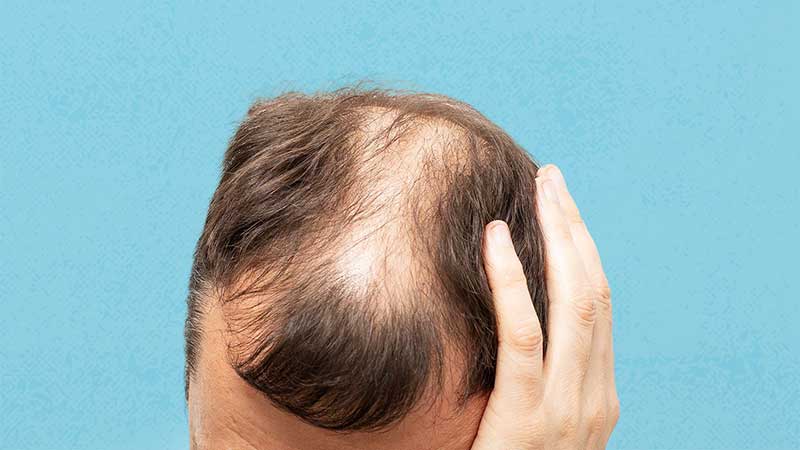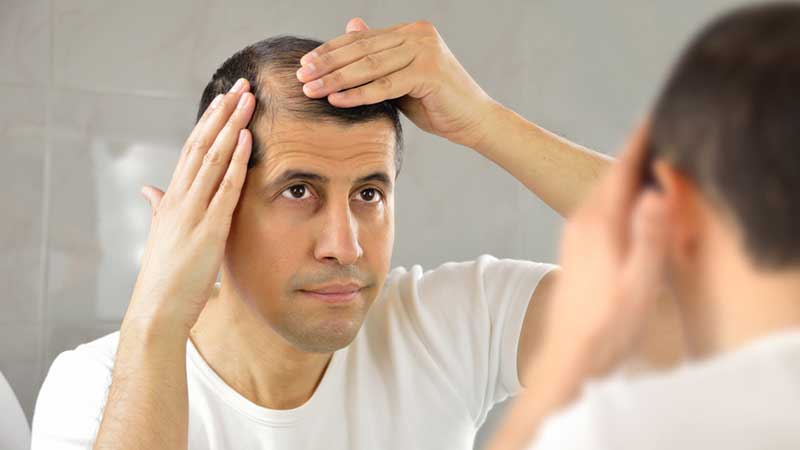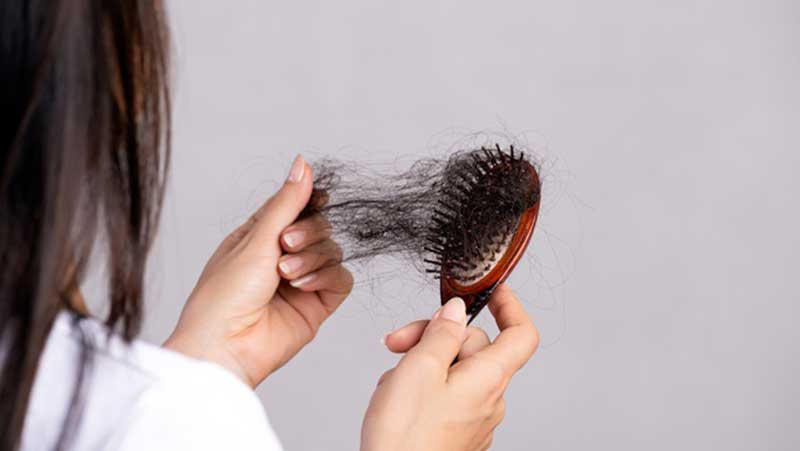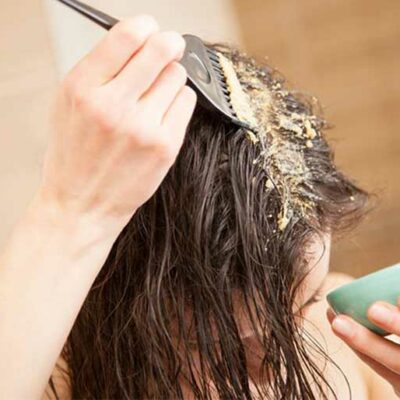Understanding the Causes of Hair Loss
The Hair Growth Cycle
Before delving into the causes of hair loss, it’s essential to grasp the hair growth cycle. Hair goes through four distinct phases: anagen, catagen, telogen, and exogen. Anagen Phase: This is the active growth phase of the hair follicle. It lasts for about 2-7 years, during which the hair grows approximately half an inch per month. Catagen Phase: Following the anagen phase, the hair follicle transitions into the catagen phase, which lasts for 2-3 weeks. During this phase, the hair stops growing and detaches from the blood supply. Telogen Phase: The telogen phase, also known as the resting phase, lasts for about 3 months. The hair follicle remains dormant while a new hair begins to form beneath it. Exogen Phase: In the exogen phase, the old hair sheds, making way for new hair to emerge from the follicle. This shedding is a normal part of the hair growth cycle.
Common Causes of Hair Loss
Hair loss can occur due to a variety of factors. Understanding these causes can help identify the appropriate treatment options. Here are some common contributors to hair loss: Genetic Factors: Family history plays a significant role in hair loss. Conditions like male and female pattern baldness are often genetically inherited. Hormonal Changes: Hormonal imbalances, such as those experienced during pregnancy, childbirth, or menopause, can lead to temporary hair loss. Nutritional Deficiencies: Inadequate intake of essential nutrients like vitamins, minerals, and proteins can weaken hair follicles and contribute to hair loss. Stress and Emotional Factors: Chronic stress, anxiety, and emotional upheavals can disrupt the normal hair growth cycle and lead to hair loss. Medical Conditions: Certain medical conditions like thyroid disorders, autoimmune diseases, scalp infections, and alopecia areata can cause hair loss. Medications and Treatments: Some medications, such as chemotherapy drugs, anticoagulants, and antidepressants, can have hair loss as a side effect. Additionally, certain treatments like radiation therapy can also result in hair loss.Male Pattern Baldness
Male pattern baldness, also known as androgenetic alopecia, is the most common type of hair loss in men. It is primarily influenced by genetic and hormonal factors, specifically dihydrotestosterone (DHT), a hormone derived from testosterone. DHT and Hair Loss: DHT binds to hair follicles, causing them to shrink over time. This results in shorter and finer hair until eventually, the follicles stop producing new hair altogether. Risk Factors: Factors such as age, family history, and hormonal imbalances contribute to the risk of male pattern baldness. Treatment Options: There are various treatment options available for male pattern baldness, including medications like minoxidil and finasteride, hair transplant surgery, and low-level laser therapy.
Female Hair Loss
Hair loss in women can be caused by a range of factors, including hormonal imbalances, medical conditions, and lifestyle choices. Hormonal Imbalances: Fluctuations in hormones, such as those experienced during pregnancy, childbirth, or menopause, can lead to hair loss in women. Telogen Effluvium: This condition occurs when a significant number of hair follicles enter the telogen (resting) phase simultaneously, resulting in excessive shedding. Treatment Approaches: Treating female hair loss involves identifying and addressing the underlying cause. This may involve hormonal therapy, nutritional supplements, and topical treatments.Lifestyle and Hair Loss
Apart from genetic and medical factors, lifestyle choices can also impact hair health and contribute to hair loss. Hair Care Practices: Excessive heat styling, frequent use of chemical treatments, and improper hair care routines can damage hair follicles and lead to hair loss. Diet and Nutrition: A balanced diet rich in essential nutrients like vitamins, minerals, and proteins is crucial for maintaining healthy hair. Stress Management: Practicing stress-reduction techniques such as meditation, exercise, and adequate sleep can help prevent stress-related hair loss. Exercise and Physical Activity: Regular physical activity improves blood circulation, which nourishes the hair follicles and promotes hair growth.
Prevention and Treatment
Taking proactive steps to prevent hair loss and promote hair growth is essential. Here are some preventive measures and treatment options: Healthy Hair Care Routine: Use gentle hair care products, avoid excessive heat styling, and minimize tension on the hair. Regularly cleanse and condition the hair to maintain scalp health. Balanced Diet and Supplements: Consume a diet rich in fruits, vegetables, lean proteins, and healthy fats. Consider supplements like biotin, zinc, and iron, under professional guidance. Seeking Professional Help: If experiencing significant hair loss, consult a dermatologist or trichologist for a comprehensive evaluation and personalized treatment plan. Medications and Procedures: Depending on the underlying cause and severity of hair loss, various medical treatments like topical minoxidil, oral medications, PRP therapy, and hair transplant surgery may be recommended.ข้อเท็จจริงของผงชูรส
Continued
essential in finding effective solutions. Factors such as genetic predisposition, hormonal imbalances, nutritional deficiencies, stress, and medical conditions can contribute to hair loss. Male pattern baldness is commonly influenced by genetic and hormonal factors, while female hair loss can be caused by hormonal imbalances and conditions like telogen effluvium. Lifestyle choices, including hair care practices, diet, stress management, and exercise, also play a significant role in maintaining healthy hair. Prevention and treatment strategies for hair loss involve adopting a healthy hair care routine, ensuring a balanced diet with adequate nutrients, managing stress, and seeking professional help when necessary. There are various medical treatments and procedures available, including medications, topical treatments, hair transplant surgery, and laser therapy. However, it is important to consult with a healthcare professional to determine the underlying cause of hair loss and create an individualized treatment plan.Can a Dry or Oily Scalp Lead to Hair Loss?
Can a dry or oily scalp lead to hair loss? Understanding the difference between dry and oily scalp is crucial in preventing hair loss. A dry scalp lacks natural moisture, leading to itchiness and flakiness, while an oily scalp experiences excessive oil production, clogging hair follicles. Both conditions can contribute to hair loss if left untreated. Proper scalp care and targeted treatments can help maintain a healthy balance and promote hair growth.












